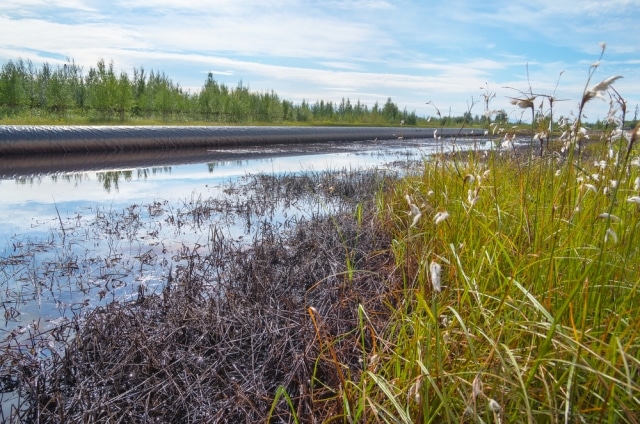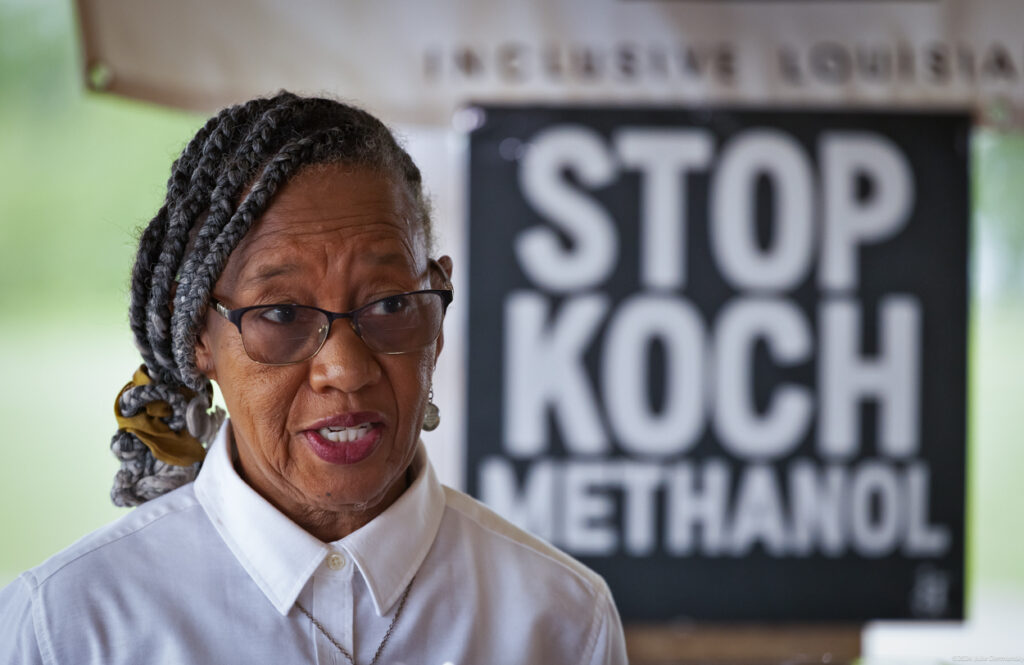One of the country’s largest environmental groups has accused the federal government of failing to follow pipeline safety planning laws, alleging that for more than two decades the Department of Transportation (DOT) has illegally allowed companies to operate oil pipelines that cross waterways without adequate preparation for spills and other disasters.
The National Wildlife Federation, which filed a notice of its intent to sue on Tuesday, accused the Pipeline and Hazardous Materials Safety Administration (PHMSA), part of the DOT, of failing to properly enforce the Oil Pollution Act, enacted by Congress in the wake of the Exxon Valdez spill.
“Due to the agency’s decades-long oversight failures, every U.S. oil pipeline that intersects a navigable water is operating illegally,” the NWF wrote in a statement announcing the filing.
On paper, the Oil Pollution Act prohibits the transportation of oil through pipelines on land or in the water, unless oil pipeline owners or operators receive government approval that they have safety plans that are adequate to respond to a worst-case oil spill, according to the NWF. But the requirements lawmakers enacted were never put into place, the group said.
“There are no regulations at all — that’s the problem,” NWF attorney Neil Kagan told MLive. “The department was supposed to issue them but it never did.”
These regulations would be important in part because pipelines pass through rivers and streams in thousands of places across the country, the NWF said. “DOT‘s Pipeline and Hazardous Materials Safety Administration ‘determined that hazardous liquid pipelines cross inland bodies of water at 18,136 locations’ in the United States. The Keystone XL oil pipeline alone would cross nearly 2,000 rivers, streams and reservoirs in Montana, South Dakota and Nebraska,” the group wrote. “This is cause for serious concern.”
Most of oil, gasoline and other fuel transported in the U.S. travels via an aging pipeline network. Half of America’s hazardous liquids pipelines were built in the 1970’s, federal data shows. For the past five years that network has been under unprecedented strain, as oil production in the US rose nearly two thirds and operators complained vigorously that pipeline shortages were creating backlogs for the exploration and production industry and old pipelines were pressed into new service. So the risk of pipeline ruptures is ever-present.
And spills become more difficult to clean up and more likely to affect drinking water supplies when they happen in water bodies.
In a 12-page letter, an attorney for NWF pointed to a series of accidents including a spill in the Yellowstone River in January that spilled up to 50,400 gallons of crude oil into the iconic waterway, contaminating drinking water and sickening residents.
That same day, state and local water officials in Arkansas objected to a proposed $5 million settlement between the federal government and Exxon Mobil over the rupture of the Pegasus pipeline in March 2013, which made headlines after over 100,000 gallons of dilbit spilled into the town of Mayflower and Lake Conway. “The proposed consent decree does nothing to protect the vital water resources within the State of Arkansas from harm when the next segment of the Pegasus pipeline ruptures,” Central Arkansas Water, a local water utility, wrote.
Nationwide, the pipeline industry averages at least 1.6 incidents per day, for a total of 2,452 leaks, explosions, spills and other large or small mishaps between January 1, 2010 and March 3, 2014, according to the FracTracker Alliance, which analyzed data from PHMSA.
“The oil pipeline industry’s track record of spills, accidents, and disasters underscore the need for iron-clad protections,” said Mike Shriberg, regional executive director of the National Wildlife Federation’s Great Lakes Regional Center.
The NWF‘s complaint largely focused on two buried pipelines that connect Lake Michigan to Lake Huron via the Straits of Mackinac, carrying up to 22.7 million gallons of crude oil or natural gas liquids a day.
But the notice filed today also carries national significance. “It’s important to note that this is the first legal action in the effort to protect the Great Lakes from oil pipeline disasters, but it has implications for any pipeline intersecting inland navigable waterways in the United States – from the Kalamazoo River to the Missouri River to the Red River to the Big Sioux River – all of which, by the way, have had oil spills,” Shriberg added.
Enbridge, which is the company that owns and operates the pipelines in the Straits of Mackinac, told the Associated Press that it had provided federal regulators with emergency response plans. “Enbridge has plans for each operating region, as well as a specific plan for the Straits,” Spokesman Michael Barnes told the AP. “In addition, we routinely conduct drills with both state and federal agencies to ensure those plans are current and effective. We take safety seriously.”
But the agency that NWF argues should be responsible for approving those safety plans has struggled to keep up with the shale drilling rush and the surge in North American oil production.
An April investigation by Politico revealed a litany of problems with PHMSA.
“The picture that emerges is of an agency that lacks the manpower to inspect the nation’s 2.6 million miles of oil and gas lines, that grants the industry it regulates significant power to influence the rule-making process, and that has stubbornly failed to take a more aggressive regulatory role, even when ordered by Congress to do so,” Politico wrote, adding that the agency employed one inspector for every 5,830 miles of pipeline nationwide and routinely slashed fines with little explanation.
This newest complaint may be another example of the agency’s lax enforcement of existing law, environmentalist argue.
“The federal government needs to do its job and protect our communities, fish, and wildlife from the next oil spill disaster,” said NWF‘s Shriberg.
Photo Credit: Spilled oil around the oil pipeline, via Shutterstock.
Subscribe to our newsletter
Stay up to date with DeSmog news and alerts






